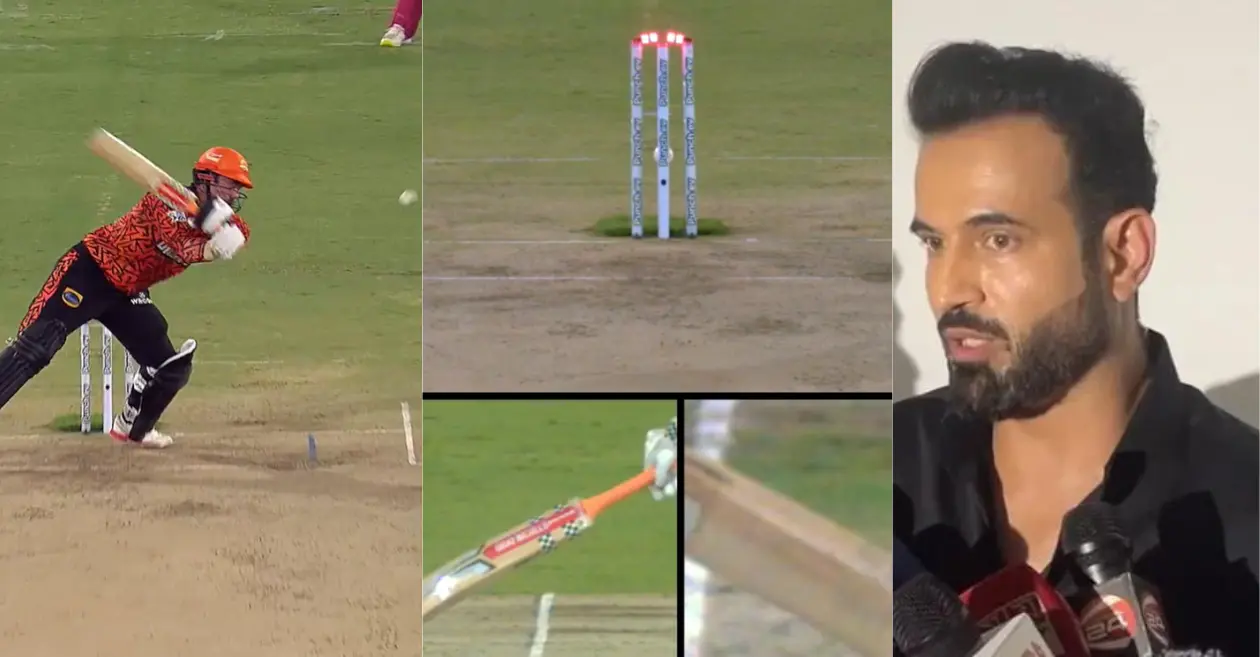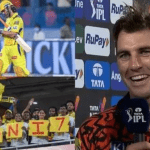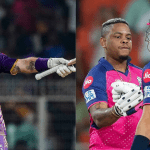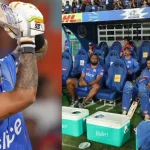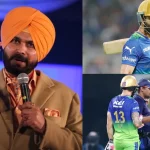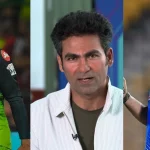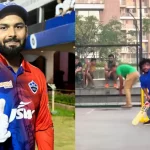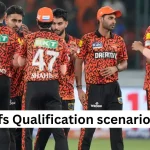The Rajiv Gandhi International Stadium witnessed another gripping IPL encounter between Sunrisers Hyderabad (SRH) and Rajasthan Royals (RR), but the spotlight was stolen by a contentious decision from the third umpire during Travis Head’s run-out attempt. The match, which saw Head narrowly escape a potential dismissal, quickly turned into a social media firestorm over the legitimacy of the umpiring call.
The Crucial Moment: Travis Head’s Narrow Escape
During the 15th over of SRH’s innings, Travis Head, the explosive opener, found himself in a tight spot facing Avesh Khan’s delivery. As Head maneuvered to connect with the ball, he missed, causing a momentary loss of balance. Sensing an opportunity, RR’s captain Sanju Samson swiftly removed the bails at the striker’s end. Head, struggling to regain composure, seemed vulnerable to being run out.
The Umpire’s Verdict: Not Out Amidst Controversy
Despite the uncertainty of the moment, the decision fell in favor of Travis Head. The third umpire, upon review, ruled him not out, to the disbelief of fans and experts alike. On the big screen, it appeared that Head’s bat was momentarily airborne as the bails were dislodged. This ruling set the stage for intense debate across social media platforms.
Outcry and Criticism: Irfan Pathan and Mitchell McClenaghan Speak Out
The controversial decision quickly attracted the ire of former cricketing stars, Irfan Pathan and Mitchell McClenaghan. Both veterans of the game took to social media to express their dissatisfaction with the umpiring standard. Irfan Pathan, in particular, criticized the decision, citing what he perceived as critical evidence ignored by the third umpire.
Irfan Pathan’s Discontent
Irfan Pathan minced no words in his critique of the umpiring. He lambasted the decision as “horrible” and questioned the thoroughness of the review process. Pathan highlighted the existence of additional frames that were purportedly overlooked, capturing Head’s bat momentarily off the ground. This viewpoint resonated with a multitude of cricket enthusiasts who felt the decision was unjust.
Mitchell McClenaghan’s Take
Joining the chorus of disapproval was Mitchell McClenaghan, whose international experience brought weight to his criticism. McClenaghan echoed Irfan’s sentiments, lamenting the quality of officiating in a tournament as prestigious as the IPL. The incident, according to McClenaghan, highlighted the need for consistent and meticulous umpiring, especially in crucial moments.
Social Media Frenzy: Fans React
The aftermath of the decision unfolded in a frenzy of online reactions. Fans across the globe flooded social media platforms with their views, with many siding with Irfan and McClenaghan’s assessment. The incident quickly became a trending topic, reigniting age-old debates about the role and accountability of match officials in high-stakes cricket tournaments.
Analyzing the Umpire’s Call
The contentious decision prompted a deeper examination of the umpiring process in modern cricket. Many questioned the technology’s limitations and the subjectivity inherent in such reviews. The case of Travis Head’s run-out served as a catalyst for broader discussions about the balance between human judgment and technological assistance in the game.
The Imperfect Nature of Umpiring in Cricket
Cricket, a sport steeped in tradition, has long grappled with the imperfections of officiating. The use of technology like Hawk-Eye and slow-motion replays has undoubtedly improved accuracy but remains susceptible to interpretation. The incident involving Travis Head’s run-out underscores the ongoing evolution of cricket officiating and the challenges of maintaining fairness and consistency.
A Call to Improve Umpiring Standards
The IPL 2024 match between SRH and RR left fans and pundits divided over the umpiring controversy surrounding Travis Head’s run-out. While the outcome favored the batting side, the debate surrounding the decision underscores a broader call for enhanced standards in cricket officiating. As the sport continues to embrace technology, the quest for precision and fairness remains ongoing, ensuring that future contests are decided on the merits of skill and performance rather than subjective calls.
